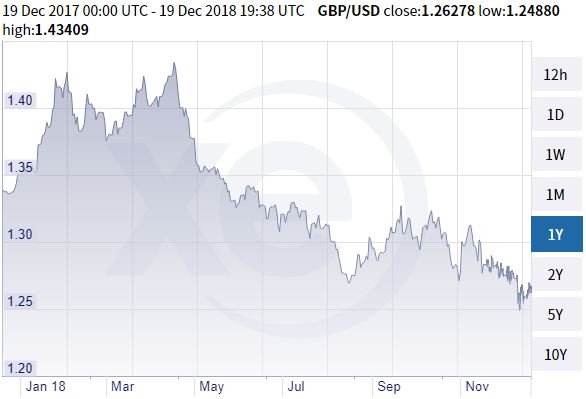Christmas Eve, not Hallowe'en, is the night Londoners tell ghost stories:
The city’s occasional creepiness has been actively fabricated, a product of its history of destruction and haphazard rebuilding. It has long been a canvas for only semi-realized grand designs, from Christopher Wren’s 17th century plans to turn the city into a second Florence to 1970s schemes to flatten historic Covent Garden Market. Destruction in the form of fires, bombing and brutal redevelopment have also reshaped the city, scorching the past away supposedly to replace it with a brighter, sunnier future.
That future never quite arrives. Great schemes get their ambitions slashed, while traces of the past are never truly effaced. London thus resembles an architectural lumber room whose random contents are waiting to be sorted into their correct order. Cottages still cower under the expressway and graveyards are shaken by passing trains. Glass and steel towers may rise, but they do so over pits full of plague corpses or along the line of old ditches once filled with dead dogs. Everywhere there are semi-effaced reminders of the past, sometimes delightful, sometimes sullen and (to the suggestible mind) resentful.
London has so many of these part-effaced remnants that it’s no wonder stories get spun around them. It’s so easy here to imagine the fields being paved over, the bombs falling, the wrecking ball swinging, and the old inhabitants being moved on. With old housing projects being demolished, skyscrapers rising and rent hikes scattering people from their old neighbourhoods, London is still changing radically, of course. And I sometimes wonder what we present day Londoners are leaving behind of ourselves, and whether it too might give future residents the shivers on a dark night.
It also has throngs of the living tonight. I just pushed my way through Covent Garden and Soho, completely underestimating the crowds. Most of the places I'd like to hang out this afternoon close early, but apparently the tourist center of London is open for business. I'm sure there are a few ghosts there as well...
I've arrived safely in the Ancestral Homeland, and as my body will tell you, it's too early to text anyone back home to let them know.
Right now I plan to sleep. Assuming I wake up sometime today, I'll get some caffeine, possibly a bite, and then walk around my second-favorite city in the world for a bit, aiming to queue up for St Paul's midnight service sometime around 22:30. (I might also try to get in to the Christmas carol service at 16:00; haven't decided yet.)
Just a quick post of articles I want to load up on my Surface at O'Hare:
Off to take Parker to boarding. Thence the Land of UK.
Yesterday was a bit busy. I spent my morning getting this:
I haven't named it yet. Current thoughts are Hinata (一陽), Hana (初夏), and Asahi (旦陽). (The new car was built in Naguro, Japan; thus, a Japanese name.)
The new Prius replaces Magdalena (built in Munich), the BMW 335iX that I got in 2012. Poor Lena, she was so old and decrepit she just couldn't go on much longer. She was burning 13.9 L/100 km, which is just awful. The new car, so far, hasn't burned any gasoline at all—it's only run off batteries.
Then I photographed a wedding. Two of my friends got married in what they called a "rogue ceremony" at a public building in Chicago. It was intimate, fun, and exactly right. Now I just have to process 450 shots...by next week...
This afternoon, I'm flying to my Ancestral Homeland via Atlanta. Tomorrow, St. Paul's. So it'll be a busy week.
Update: We had about 10 minutes of sun this morning, so I got a better photo of the car: 
The December solstice happens today at 22:21 UTC, which is 16:21 here in Chicago, which it turns out is the exact time of tonight's sunset. This is also true for everywhere along the lightest gray line on this map:

Note also that Africa and Europe will have a brilliant gibbous moon at the same time.
Happy solstice!
As someone joked after Defense Secretary Jim Mattis resigned yesterday, "we have to worry when the grown-up in the room is nicknamed 'Mad Dog.'" His resignation letter doesn't seem that mad:
One core belief I have always held is that our strength as a nation is inextricably linked to the strength of our unique and comprehensive system of alliances and partnerships. While the US remains the indispensable nation in the free world, we cannot protect our interests or serve that role effectively without maintaining strong alliances and showing respect to those allies. Like you, I have said from the beginning that the armed forces of the United States should not be the policeman of the world. Instead, we must use all tools of American power to provide for the common defense, including providing effective leadership to our alliances. NATO's 29 democracies demonstrated that strength in their commitment to fighting alongside us following the 9-11 attack on America. The Defeat-ISIS coalition of 74 nations is further proof.
Similarly, I believe we must be resolute and unambiguous in our approach to those countries whose strategic interests are increasingly in tension with ours. It is clear that China and Russia, for example, want to shape a world consistent with their authoritarian model - gaining veto authority over other nations' economic, diplomatic, and security decisions - to promote their own interests at the expense of their neighbors, America and our allies. That is why we must use all the tools of American power to provide for the common defense.
My views on treating allies with respect and also being clear-eyed about both malign actors and strategic competitors are strongly held and informed by over four decades of immersion in these issues. We must do everything possible to advance an international order that is most conducive to our security, prosperity and values, and we are strengthened in this effort by the solidarity of our alliances.
Interesting times. And to the reason that Mattis has resigned (a disagreement with the president over pulling out of Syria), Josh Marshall rightly points out that if we don't know why the president is doing something, that's a problem in itself:
This most basic level of transparency – knowing roughly the reasons why the government is doing the things its doing – is something Americans have mostly been able to take for granted. But today we can’t. And that has knock-on effects down the line of democratic self-government and accountability. If we don’t know why things are happening, whether they’re happening for plausible policy reasons or because of pay-offs or extortion or whims, we can’t properly react to them. We can’t properly understand what is happening with no clear idea why it is happening. We lack the basic information around which political groupings properly react to those in power, supporting the government’s actions or opposing them. It generates a climate of profound uncertainty and civic paralysis.
Which, not to put too fine a point on it, is exactly what Russia and China want. We really are in an upside-down world, when Democrats are worried about our adversaries and Republicans don't care.
Citylab has a list:
Georges-Eugène, Baron Haussmann, 1809-1891
It’s hard to overstate the urban legacy of Baron Haussmann, prefect of the Seine during the reign of France’s Emperor Napoleon III. Between 1853 and 1870, Haussmann used his authoritarian mandate to transform the medieval Paris into the paragon of a modern city.
He ran broad new boulevards through maze-like old neighborhoods to slow the spread of disease and improve transportation (and, some historians have said, make it easier for troops to put down the armed rebellions that erupted in the French capital). The buildings that replaced the medieval quarters—with five or six stories and mansard roofs—have since become symbols of Paris and his remaking of it. Haussmann placed grand, secular monuments strategically along the sight lines of the new boulevards, and created parks and squares. New sewer and gas lines improved sanitation and, virtually overnight, transformed Paris into the City of Light.
There are 14 others, including Jane Jacobs and her arch-nemesis Robert Moses.
Via Bruce Schneier, a report on how third-party Amazon sellers use Amazon's own policies to attack their rivals:
When you buy something on Amazon, the odds are, you aren’t buying it from Amazon at all. Plansky is one of 6 million sellers on Amazon Marketplace, the company’s third-party platform. They are largely hidden from customers, but behind any item for sale, there could be dozens of sellers, all competing for your click. This year, Marketplace sales were almost double those of Amazon retail itself, according to Marketplace Pulse, making the seller platform alone the largest e-commerce business in the world.
For sellers, Amazon is a quasi-state. They rely on its infrastructure — its warehouses, shipping network, financial systems, and portal to millions of customers — and pay taxes in the form of fees. They also live in terror of its rules, which often change and are harshly enforced. A cryptic email like the one Plansky received can send a seller’s business into bankruptcy, with few avenues for appeal.
Sellers are more worried about a case being opened on Amazon than in actual court, says Dave Bryant, an Amazon seller and blogger. Amazon’s judgment is swifter and less predictable, and now that the company controls nearly halfof the online retail market in the US, its rulings can instantly determine the success or failure of your business, he says. “Amazon is the judge, the jury, and the executioner.”
An algorithm flags sellers based on a range of metrics — customer complaints, number of returns, certain keywords used in reviews, and other, more mysterious variables — and passes them to Performance workers based in India, Costa Rica, and other locations. These workers choose between several prewritten blurbs to send to sellers. They may see what the actual problem is or the key item missing from an appeal, but they can’t be more specific than the forms allow, according to Rachel Greer, who worked as a fraud investigator at Amazon before becoming a seller consultant. “It feels like it’s a bot, but it’s actually a human who is very frustrated about the fact that they have to work like that,” she says.
The Performance workers’ incentives favor rejection. They must process approximately one claim every four minutes, and reinstating someone who later gets suspended again counts against them.... When they fall behind...they’ll often “punt” by sending requests for more information....
Scary. And an example of why monopolies are bad. As Schenier says, "Amazon is basically its own government—with its own rules that its suppliers have no choice but to follow. And, of course, increasingly there is no option but to sell your stuff on Amazon."
Note that I say this while watching an old TV show on Amazon Prime, waiting for Amazon to deliver a replacement Fitbit band, and on and on.
I'm heading to the Ancestral Homeland in a few days, and this chart is a veritable Christmas present from the Brexit idiots:

The last time Sterling was this low was Christmas 2016—the last Christmas I was in London.
Thank you, Boris Johnson, and your tourist-friendly policies.